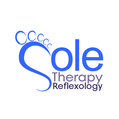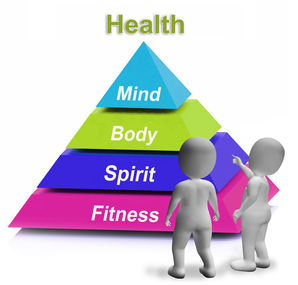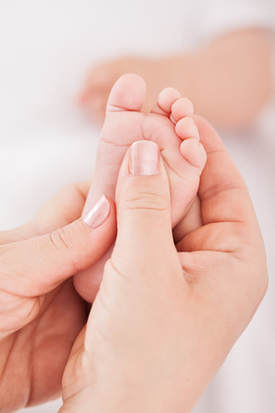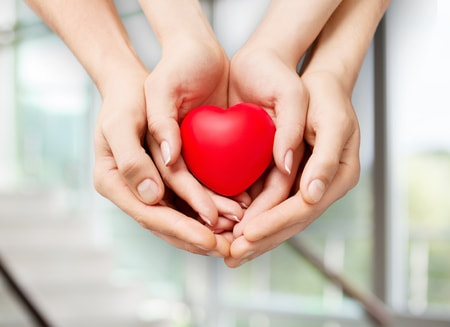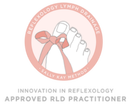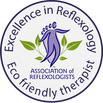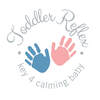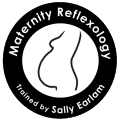What is reflexology?
This a natural, non-invasive holistic therapy where gentle pressure is applied to areas of the feet (or hands), with the aim of bringing about deep relaxation, stimulate the body’s own healing processes and help it to return to a state of balance and wellbeing. This therapy is now being integrated into traditional health care, with 80% of palliative care units employing a reflexologist.
Reflexes relate to organs of the body. Through stimulating reflex areas and by promoting deep relaxation, the effects of stress on organs, systems of the body and the individual as a whole can be reduced. This therapy encourages the body to naturally restore its own healthy balance. Some people notice a positive change to their well-being during their first reflexology session, whilst for others it can take more treatments. You may find other things improve as well, but this happens on an individual basis - the only way to know if and how reflexology will help you is to try it.
N.B. Reflexology is not an alternative to seeking medical help. Reflexologists do not diagnose, prescribe or claim to cure. We are here to support your journey.
Reflexes relate to organs of the body. Through stimulating reflex areas and by promoting deep relaxation, the effects of stress on organs, systems of the body and the individual as a whole can be reduced. This therapy encourages the body to naturally restore its own healthy balance. Some people notice a positive change to their well-being during their first reflexology session, whilst for others it can take more treatments. You may find other things improve as well, but this happens on an individual basis - the only way to know if and how reflexology will help you is to try it.
N.B. Reflexology is not an alternative to seeking medical help. Reflexologists do not diagnose, prescribe or claim to cure. We are here to support your journey.
How can reflexology help me?
Reflexology is suitable for all ages and is often used to support those suffering from ailments and with pre-existing conditions
|
It is accepted that 75% of all illnesses and diseases are linked to stress. This therapy helps alleviate stress and by tailoring treatments to individual needs their bodies own healing processes can be enhanced. All the systems of the body are linked and an imbalance in one area can impact on others. Reflexology, is a natural, non-invasive way of encouraging all systems of the body to work better. It is a therapy that considers the person as a whole and recognises that every person is unique. It aims to help the body restore balance and promote healing, it can support medical treatment and is used in some hospitals and care establishments.
|
Sole Therapy Reflexology therapeutic, organic treatments are planned with the client specifically for them
Benefits of reflexology
|
The history of reflexology and the insights of quantum physics
The art of reflexology is an ancient therapy that has been practised for over 5000 years. It was introduced to the western world in 1913 by Dr Fitzgerald whose research identified how reflex areas on the feet and hands were linked to organs within 'zones'. The research also showed that applying pressure to one area of the body could provide an analgesic effect on another and that the underlying cause of the pain could be relieved.
The study of reflexology has advanced and techniques continue to develop to the present day. There has been positive research on reflexology but more large scale studies are needed for generalisations to be made. Research for its use with specific client groups and ailments are ongoing. Please see the 'Research' section.
The study of quantum physics is bringing an understanding of how this therapy is effective. Reflexology, as with many holistic therapies (e.g. acupuncture) is based upon the belief that energy 'fields' of the organs and the body as a whole are influential in controlling our physiology. Advances in quantum physics have discovered that physical atoms radiate unique energy patterns. Cell biologist, Bruce Lipton (PhD) states that "energy and matter are so deeply entangled it is impossible to consider them as independent elements" (2015). He explains how the flow of information in the quantum view is holistic, where cells are linked in a complex web, and a biological dysfunction may arise from miscommunication along any part of the web. This evolving area of science is very exciting in explaining why reflexology can be so powerful in a vast range of ailments.
The study of reflexology has advanced and techniques continue to develop to the present day. There has been positive research on reflexology but more large scale studies are needed for generalisations to be made. Research for its use with specific client groups and ailments are ongoing. Please see the 'Research' section.
The study of quantum physics is bringing an understanding of how this therapy is effective. Reflexology, as with many holistic therapies (e.g. acupuncture) is based upon the belief that energy 'fields' of the organs and the body as a whole are influential in controlling our physiology. Advances in quantum physics have discovered that physical atoms radiate unique energy patterns. Cell biologist, Bruce Lipton (PhD) states that "energy and matter are so deeply entangled it is impossible to consider them as independent elements" (2015). He explains how the flow of information in the quantum view is holistic, where cells are linked in a complex web, and a biological dysfunction may arise from miscommunication along any part of the web. This evolving area of science is very exciting in explaining why reflexology can be so powerful in a vast range of ailments.
Research into reflexology
Changes in advertising regulations mean that even though I have professional experience in the vast range of benefits that reflexology can bring, I cannot use any medical terminology to describe the benefits that it may bring you.
Research in to reflexology is increasing. Ground breaking studies, using cutting edge technology to measure the impact, have shown that individual reflexes impact discrete parts of the body. For example, a study showed that the sensory cortex in the brain can be activated via stimulation of the associated foot reflex and the effect was further shown to be not caused by the placebo effect. Another study using Doppler ultrasound to measure outcomes, found blood flow increased to renal organs when the kidney reflexes are stimulated. (Reflexions, 2017, p9). Reflexology has been shown to significantly decrease pain experienced and lessen the need for pain relief. It is provided in over 62% of cancer care units (figure 2009) as evidence shows it reduces anxiety in those undergoing cancer treatment and adverse side effects of treatment. Research exists on a vast range of ailments and conditions, from migraines to pregnancy, chronic digestive problems to back pain. There is ongoing research into the effectiveness of reflexology via this link which you may find useful.
Research in to reflexology is increasing. Ground breaking studies, using cutting edge technology to measure the impact, have shown that individual reflexes impact discrete parts of the body. For example, a study showed that the sensory cortex in the brain can be activated via stimulation of the associated foot reflex and the effect was further shown to be not caused by the placebo effect. Another study using Doppler ultrasound to measure outcomes, found blood flow increased to renal organs when the kidney reflexes are stimulated. (Reflexions, 2017, p9). Reflexology has been shown to significantly decrease pain experienced and lessen the need for pain relief. It is provided in over 62% of cancer care units (figure 2009) as evidence shows it reduces anxiety in those undergoing cancer treatment and adverse side effects of treatment. Research exists on a vast range of ailments and conditions, from migraines to pregnancy, chronic digestive problems to back pain. There is ongoing research into the effectiveness of reflexology via this link which you may find useful.
